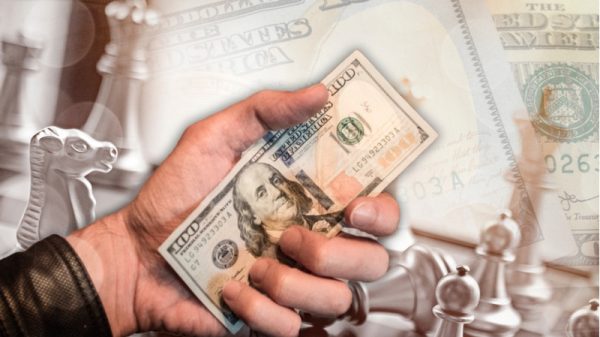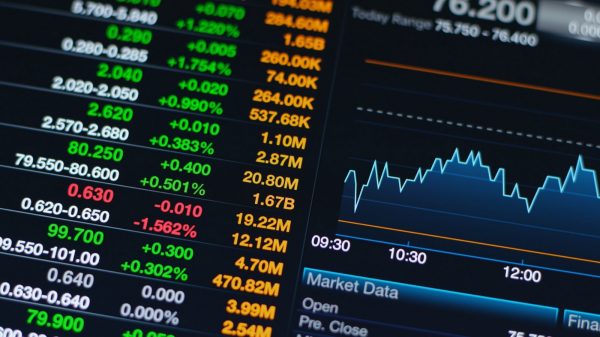The film Rogue Trader stars Ewan McGregor as Nick Leeson and Anna Friel as his wife Lisa, and it was directed by James Dearden. The film was based on Leeson’s book, “Rogue Trader: How I Brought Down Barings Bank and Shook the Financial World”, which was published in 1996. The film was released three years later.
Is Rogue Trader Based on a Real Person?
Yes, the 1999 film Rogue Trader is based on Nick Leeson, a real person. The film dramatises Nick Leeson’s fraudulent activities that led to the collapse of Barings Bank, and is based on Nick Leeson’s autobiography of the same name, which he wrote while serving his prison sentence in Singapore.
Who is Nick Leeson?
Nick Leeson is a former derivatives trader who became infamous for his role in the collapse of Barings Bank in 1995. Born in Watford, England in 1967, Nick Leeson began his career in finance as a clerk with the London-based firm Coutts & Co. He later moved to Morgan Stanley, where he worked as a trader in the futures market.
In 1989, Leeson was hired by Barings Bank to work in its Singapore office. He was tasked with trading futures contracts on the Singapore International Monetary Exchange (SIMEX) on behalf of Barings’ clients.
Leeson quickly made a name for himself as a successful trader, earning large profits for the bank in the process.
However, Leeson’s success was short-lived. In 1992, he began making unauthorised trades on the Nikkei 225 index, a stock market index in Japan. which led to substantial losses for Barings Bank. Rather than come clean about his mistakes, Leeson continued to make increasingly risky trades in an attempt to recoup his losses.
What did Nick Leeson do?
In 1993, Nick Leeson began making additional unauthorised trades in an attempt to recoup the losses he had made. He created a fictitious account, known as the 88888 account, and took advantage of a loophole in Barings Bank’s accounting system, to hide his losses.
These losses eventually reached £827 million, which was twice the bank’s available trading capital. When the bank discovered the losses, it was too late to save the institution, and it was forced to declare bankruptcy.
He was arrested in Germany shortly afterwards, and was eventually extradited to Singapore, where he was sentenced to six and a half years in prison for fraud and forgery.
The Collapse of Barings Bank
Barings Bank was one of the oldest and most respected banks in the UK. Founded in 1762, it had survived the Napoleonic Wars, the Great Depression, and both World Wars. However, in 1995, the bank collapsed due to the actions of one rogue trader, Nick Leeson.
The collapse of Barings Bank was a major scandal in the financial world, and it had far-reaching consequences. It led to a loss of confidence in the banking industry, and it raised questions about the effectiveness of regulatory bodies. It also highlighted the dangers of giving too much power to individual traders and the need for better risk management practices.
How accurate is the film Rogue Trader?
The film received mixed reviews from critics, with some praising McGregor’s performance and the film’s portrayal of events, while others criticised it for being too sensationalised. Despite the mixed reviews, the movie was a financial success, grossing over $8 million worldwide.
While it takes some liberties with the facts, the film does accurately portray the events that led to the downfall of the bank.
One of the most significant inaccuracies in the movie is the portrayal of Leeson as a heroic figure who was trying to save the bank. In reality, Leeson’s actions were driven by greed and a desire to cover up his losses. The film also oversimplifies the role of the bank’s management in the scandal, suggesting that they were unaware of Leeson’s activities. In fact, there were numerous warning signs that were ignored by senior management.
Despite these inaccuracies, the film provides a good overview of the events that led to the collapse of Barings Bank. It accurately portrays the high-pressure environment of the trading floor and the intense competition between traders. It also highlights the risks involved in speculative trading and the potential consequences of unchecked risk-taking.
What happed to Nick Leeson?
Nick Leeson fled Singapore in February 1995, but was arrested in Germany and extradited to Singapore. He was sentenced to six and a half years in prison, but was released in 1999 due to colon cancer.
Today, Leeson works as a consultant and public speaker, and has written several books about his experiences.
He now lives in Galway, Ireland.



























